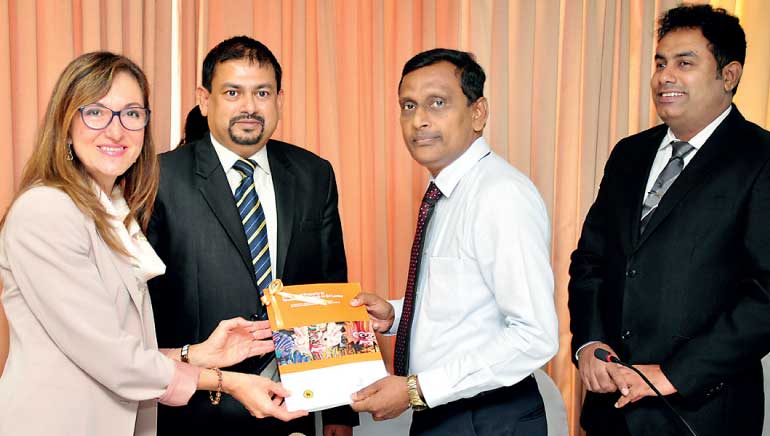Monday Feb 16, 2026
Monday Feb 16, 2026
Wednesday, 15 November 2017 00:01 - - {{hitsCtrl.values.hits}}

By Skandha Gunasekara
Proper use of the country’s Intellectual Property (IP) tools coupled with a better branding strategy for Sri Lanka tourism would help the island achieve its sustainable development goals, a study by the World Intellectual Property Organization (WIPO) has recommended.
The study suggests the island’s tourism sector could potentially contribute 25% to the GDP if the country pays adequate attention to marketing with the use of IP, as opposed to just selling its products and services.
It proposed that Sri Lanka adopt an effective tourism promotional strategy for destination branding with a combination of different brand elements, brand names, URLs, logos, symbols, characters, spokespeople, slogans, jingles, packages and that these all could be protected under several IP rights, namely trademarks, copyrights and design rights.
Moreover, events and cities could also be promoted by adopting branding strategies that are protected by the trademark law of Sri Lanka.
IP resources should also be used to realise and promote the untapped potential of Sri Lanka’s natural, cultural and archaeological heritage sites. Branding of cultural heritage sites by using appropriate trademarks or collective mark regime would add value to cultural goods and services while ensuring the IPs are protected.
In addition, the Ayurvedic sector should be promoted as well as the Ayurveda sector was one of the fastest growing segments of the global tourism landscape. Branding of Ayurveda through trademark law, in particular the certification mark regime, would add value and provide needed credibility by conforming to international standards.
The study further recommended that IP tools could be used to create competitive Small and Medium sized Enterprises (SMEs) by registering the trade name of the hotel/restaurant which would add value to these enterprises. A new design for a small hotel, home-stay, tree house, eco-lodge or rest stop could be protected by design rights and the IP system could therefore promote local competition in tourism sector.
IP rights could also be used as collateral and IP-backed loan schemes could be implemented for the benefit of cash strapped, tourism oriented Small and Medium Sized Enterprises.
The study also called for an institutional capacity building program in IP, tourism and cultural institutions and that well designed training programs, including workshops and seminars to support institutional capacity building (with key institutions such as the National Intellectual Property Office, NSF, the Inventors’ Commission and cultural centres), could ensure that institutes are protected, promoted and IP rights are enforced in a more efficient and effective manner.